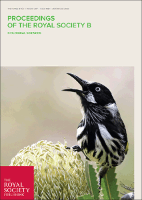
JOURNAL OF BIOSCIENCES
Scope & Guideline
Championing Impactful Discoveries in Life Sciences
Introduction
Aims and Scopes
- Molecular Biology and Genetics:
Research on the molecular mechanisms underlying biological processes, including gene expression, genetic disorders, and molecular interactions. - Cell Biology and Physiology:
Studies investigating cellular functions, signaling pathways, and the physiological roles of various cell types in health and disease. - Ecology and Environmental Biology:
Research focusing on ecological interactions, biodiversity, conservation, and the impact of environmental changes on biological systems. - Biomedical Research and Therapeutics:
Exploration of disease mechanisms, potential therapeutic targets, and the development of novel treatments, particularly in cancer and genetic disorders. - Plant and Agricultural Sciences:
Research on plant biology, including genetics, physiology, and the application of biotechnology in agriculture. - Microbiology and Infectious Diseases:
Studies addressing microbial interactions, pathogenesis, and the development of antimicrobial strategies.
Trending and Emerging
- CRISPR and Gene Editing Technologies:
Research utilizing CRISPR and other gene-editing technologies to address genetic disorders and enhance agricultural traits is rapidly growing. - Microbiome Research:
Studies focusing on the human and environmental microbiomes are increasingly relevant, highlighting their roles in health, disease, and ecosystem functioning. - Systems Biology and Bioinformatics:
Integration of systems biology approaches and bioinformatics tools to understand complex biological interactions and networks is becoming a major focus. - Cancer Immunotherapy and Biomarkers:
Research on immunotherapy strategies and the identification of biomarkers for cancer prognosis and treatment is on the rise, reflecting advances in personalized medicine. - Sustainable Agriculture and Biotechnology:
Emerging themes in sustainable agricultural practices and the application of biotechnology for crop improvement are gaining prominence in response to global challenges. - Neurobiology and Neurodegenerative Disease Research:
Increased focus on the mechanisms underlying neurodegenerative diseases and potential therapeutic interventions represents a significant trend in recent publications.
Declining or Waning
- Traditional Pharmacology:
Research centered on traditional pharmacological approaches is becoming less common, as there is a shift towards precision medicine and molecularly targeted therapies. - Basic Taxonomy and Systematics:
While important, studies solely focused on taxonomy and systematics without integrating molecular or ecological perspectives are appearing less frequently. - Conventional Agricultural Practices:
Research that emphasizes traditional agricultural practices is declining, giving way to studies on sustainable practices and biotechnology applications. - Basic Ecological Field Studies:
Although still relevant, basic observational studies in ecology are being overshadowed by integrative studies that utilize advanced molecular techniques. - In vitro Models without Translational Application:
Research using in vitro models that do not aim for translational applications or clinical relevance is becoming less favored.
Similar Journals

Open Life Sciences
Advancing Life Sciences Through Open AccessOpen Life Sciences is a distinguished open-access journal published by DE GRUYTER POLAND SP Z O O, dedicated to advancing research across diverse disciplines in the life sciences. Since its inception in 2014 and transitioning to open access in 2015, the journal has become a pivotal platform for researchers, fostering the dissemination of high-quality scientific work while ensuring that valuable findings are freely accessible to the global community. With an impressive categorization into Q2 in Agricultural and Biological Sciences and Q3 in several other fields including Biochemistry and Immunology as of 2023, Open Life Sciences promotes innovation and knowledge sharing across its broad spectrum of topics. The journal's commitment to excellence is reflected in its competitive Scopus rankings, making it an essential resource for professionals and students alike who are keen to stay at the forefront of life sciences research.

PROCEEDINGS OF THE ROYAL SOCIETY B-BIOLOGICAL SCIENCES
Unveiling Innovations in Biological ResearchPROCEEDINGS OF THE ROYAL SOCIETY B-BIOLOGICAL SCIENCES, published by the esteemed Royal Society, stands as a premier platform for disseminating cutting-edge research in the fields of Biological Sciences. With an impressive impact factor reflective of its high citation rates and scholarly contributions, this journal encompasses a wide array of disciplines, including Agricultural and Biological Sciences, Biochemistry, Genetics and Molecular Biology, Environmental Science, and Immunology and Microbiology, consistently ranking in the Q1 category across these fields. Since its inception in 1946, it has been committed to advancing our understanding of biological systems and informing evidence-based practices. Researchers and academics can submit their work without the Open Access barrier, thereby maintaining the integrity of the disciplinary discourse while providing comprehensive insights. The journal's location in the United Kingdom also positions it at the heart of global scientific innovation, making it a vital resource for professionals and students alike who are eager to explore the latest trends and breakthroughs in the biological sciences.

Journal of Biological Research-Thessaloniki
Pioneering Research in the Heart of Thessaloniki.Journal of Biological Research-Thessaloniki, published by Aristotle University of Thessaloniki, is a distinguished academic journal committed to advancing the fields of Agricultural and Biological Sciences and Biochemistry, Genetics and Molecular Biology. As an Open Access journal since 2004, it provides a platform for the rapid dissemination of innovative research that spans diverse biological disciplines. With an impact factor that situates it in the Q2 category for Agricultural and Biological Sciences and Q3 for Biochemistry, Genetics and Molecular Biology as of 2023, the journal demonstrates a significant contribution to its respective fields. Located in Thessaloniki, Greece, it serves a global audience of researchers, professionals, and students eager to access quality scientific content. The journal is dedicated to publishing original research articles, reviews, and critical commentaries, encouraging collaboration and dialogue amongst scientists dedicated to the frontiers of biological research.

Science China-Life Sciences
Pioneering discoveries that shape our understanding of life.Science China-Life Sciences, published by SCIENCE PRESS, is a premier academic journal that stands at the forefront of innovative research and discoveries in the fields of life sciences, spanning crucial areas such as agricultural and biological sciences, biochemistry, genetics, molecular biology, and environmental science. With an impressive Q1 ranking in its respective categories—ranked #5 in Agricultural and Biological Sciences, #7 in Environmental Science, and #17 in Biochemistry, Genetics and Molecular Biology—this journal is recognized for its rigorous peer-review process and significant impact within the scientific community, as reflected in its high percentiles (97th and 92nd). Maintained as an Open Access publication, it ensures broad dissemination and accessibility of research findings, fostering collaboration and knowledge sharing among researchers, professionals, and students alike. Given its position in the research landscape and its commitment to high-quality scholarship, Science China-Life Sciences plays a vital role in advancing life sciences research, supporting scientists in addressing global challenges through innovative biological solutions.

TURKISH JOURNAL OF BIOLOGY
Empowering Researchers with Open Access to Cutting-edge ScienceTURKISH JOURNAL OF BIOLOGY, published by the Tubitak Scientific & Technological Research Council Turkey, is an esteemed peer-reviewed periodical that serves as a pivotal platform for advancing the fields of Agricultural and Biological Sciences. With a strong focus on innovative research across various biological domains, including Cell Biology, Genetics, and Microbiology, this journal not only fulfills the academic community's quest for high-quality research but also fosters collaboration and knowledge sharing among researchers. The journal's notable impact factors reflect its commitment to excellence, with its latest rankings placing it in Q2 in Agricultural and Biological Sciences (miscellaneous) and in Q4 for several other categories. By offering open access to its content, TURKISH JOURNAL OF BIOLOGY ensures that valuable biological insights are readily available to the global academic community. Its convergence from 2006 to 2024 signifies its longstanding influence in the biosciences, making it an essential resource for researchers, professionals, and students alike aiming to stay at the forefront of biological research and innovation.

FASEB BioAdvances
Transforming Insights into Impactful ResearchFASEB BioAdvances, published by WILEY, is an esteemed open-access journal dedicated to advancing the fields of biochemistry, molecular biology, and physiology. Since its inception in 2019, the journal has rapidly established a significant presence within the academic community, boasting an impressive impact factor reflective of its Q2 and Q3 standings across various categories, including Biochemistry, Genetics and Molecular Biology, Cancer Research, Molecular Medicine, and Physiology. The journal aims to disseminate high-quality research and innovative findings to enhance the understanding of biological processes, making it a vital resource for researchers, professionals, and students alike. With its commitment to open access, FASEB BioAdvances ensures that groundbreaking research is available to a global audience, facilitating collaboration and exploration in these rapidly evolving scientific domains.

CURRENT BIOLOGY
Championing Breakthroughs in Biological SciencesCURRENT BIOLOGY is a premier academic journal published by CELL PRESS, dedicated to a broad spectrum of fields within biological sciences. With an ISSN of 0960-9822 and E-ISSN 1879-0445, the journal has established itself as a vital resource for groundbreaking research and advancements since its inception in 1991. CURRENT BIOLOGY boasts high prominence in its categories, securing a Q1 quartile ranking in Agricultural and Biological Sciences, Biochemistry, Genetics and Molecular Biology, and Neuroscience, indicating its significant impact and relevance in these fields. Notably, it ranks #9 out of 221 journals in Agricultural and Biological Sciences, placing it in the 96th percentile, while also maintaining a strong presence in the Biochemistry category with a rank of #26. Researchers and professionals can rely on CURRENT BIOLOGY for comprehensive reviews, innovative methodologies, and crucial scientific developments that bridge theoretical knowledge with practical applications. The journal continues to play an essential role in enhancing the global dialogue in biological research, making it indispensable for students, academics, and industry experts aiming to stay at the forefront of the rapidly evolving landscape of life sciences.

DNA AND CELL BIOLOGY
Connecting Researchers to the Heart of BiologyDNA AND CELL BIOLOGY, published by Mary Ann Liebert, Inc, is a distinguished journal in the realms of cell biology, genetics, and molecular biology, holding a notable position in its Q3 and Q2 quartile rankings across multiple academic categories as of 2023. With an ISSN of 1044-5498 and an E-ISSN of 1557-7430, this journal has been a pivotal platform for the dissemination of cutting-edge research since its inception in 1990, extending its coverage through 2024. Situated in the United States, the journal offers high-quality peer-reviewed articles, exploring significant advancements in biological sciences while fostering interdisciplinary collaborations within the research community. Though it currently does not offer open access, subscribed institutions and individual readers benefit from its rich repository of knowledge. The journal's rigorous standards and impactful content make it an essential resource for researchers, professionals, and students alike, aiming to stay at the forefront of discoveries influencing DNA and cellular dynamics.

Biomolecules
Where groundbreaking research meets open access knowledge.Biomolecules is a prestigious, peer-reviewed journal published by MDPI that has been dedicated to advancing the field of biochemical research since its launch in 2011. With an impressive impact factor positioning it in Q1 for Biochemistry and Q2 for Molecular Biology as of 2023, this journal serves as a vital platform for disseminating high-quality research findings related to biological macromolecules, including proteins, nucleic acids, and carbohydrates. Operating as an Open Access journal, it ensures that vital research is accessible to all, furthering knowledge dissemination and collaboration within the scientific community. Located in Basel, Switzerland, the journal has established a significant presence in major academic databases, holding commendable Scopus rankings in both Biochemistry and Molecular Biology. Researchers, professionals, and students will find Biomolecules an invaluable resource for cutting-edge research, reviews, and insights in the rapidly evolving domains of biochemistry and molecular biology.

Frontiers in Bioscience-Landmark
Driving Impactful Research in the BiosciencesFrontiers in Bioscience-Landmark is a prestigious journal published by IMR PRESS that focuses on a diverse array of topics within the fields of biochemistry, genetics, molecular biology, immunology, and microbiology. With the ISSN 2768-6701 and E-ISSN 2768-6698, this journal has carved a significant niche since its inception in 1996, making its mark in contributions to the scientific community all the way through to 2024. Having achieved a respectable Q2 cohort rank in multiple categories, including biochemistry and immunology, it stands out for its impactful research, evidenced by its current Scopus rankings which highlight it as a vital resource for ongoing studies and advancements in the biosciences. Despite not being open access, the journal ensures that readers have access to high-quality research articles that are peer-reviewed and designed to foster academic discourse. The importance of Frontiers in Bioscience-Landmark lies in its commitment to disseminating innovative findings that can significantly enhance our understanding of biological sciences, making it an essential read for researchers, professionals, and students alike.